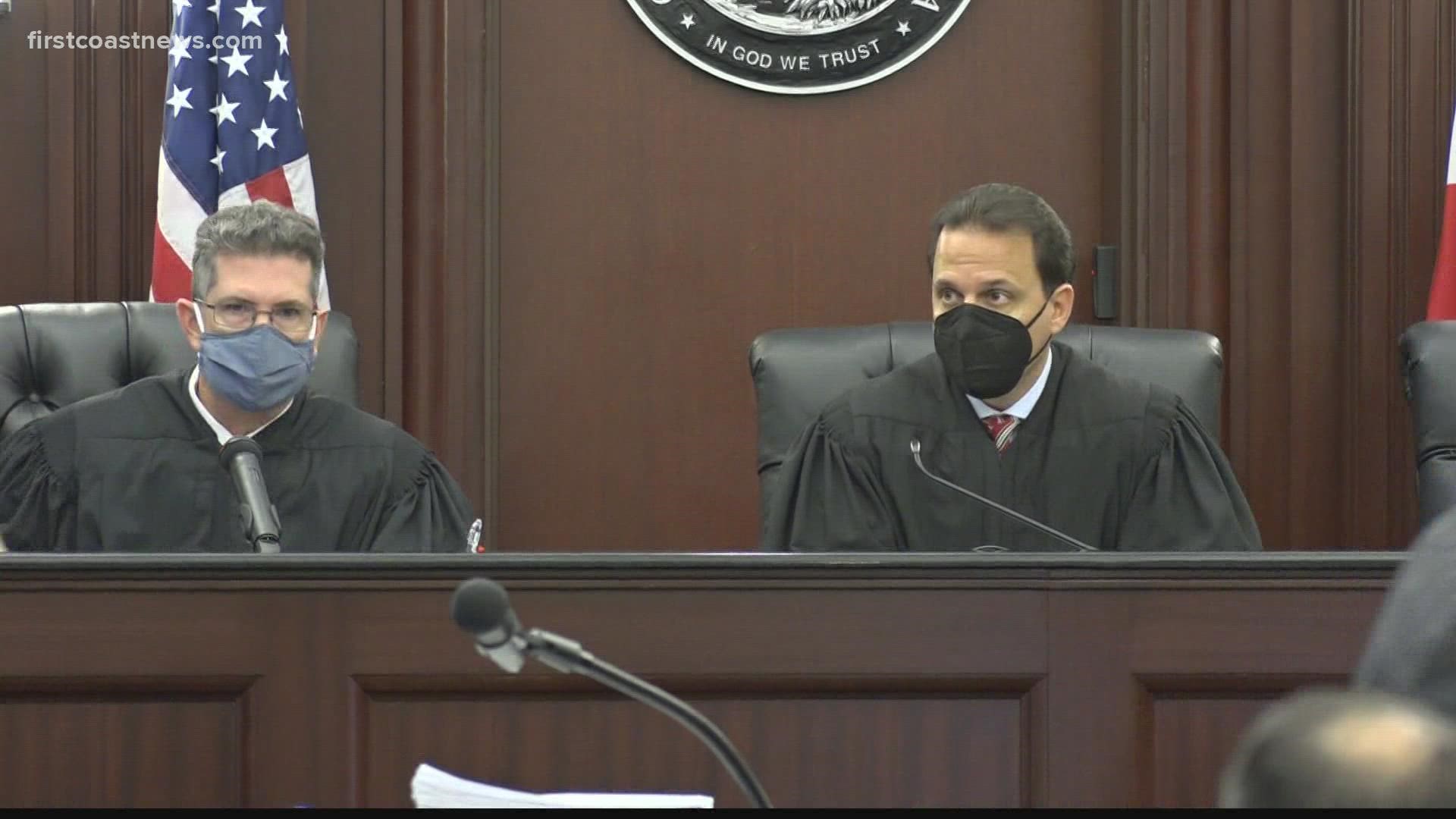JACKSONVILLE, Fla. — Four hundred and fifty mentally ill people are languishing in Florida jails, unable to get treatment at state hospitals. And that isn’t going to change anytime soon.
At an unusual joint hearing before three judges Friday morning, the state Department of Children and Families said it was unable to meet its statutory obligations.
“It’s a bit like patching a sinking boat with some duct tape,” DCF Attorney Andrew McGinley told Judges Mark Borello, Adrian Soud and Meredith Charbula. “We have 450 people on the waiting list [at state mental hospitals]. We don’t have 450 beds.”
By law, DCF has 15 days to hospitalize a jail inmate when a judge orders a transfer, but that ended when COVID began. DCF announced in March 2020 that it was halting jail transfers to state mental hospitals to stem the spread of the virus. Initially, the agency said it would be a temporary halt until new cleaning and quarantining protocols were in place.
But Florida issued its last emergency order in September 2020, and the backlog remains. Some patients have been waiting more than six months, something that can damage their mental health but also delay their court proceedings.
Friday’s hearing involved five cases, but Public Defender Charlie Cofer said it’s a problem that needs a global solution.
“This is an important evidentiary determination for this court to make because if this court does not make it, we are going to be embroiled in this forever because I have to fight for each client.”
DCF maintains it should not be seen as willfully violating a court order when it does not have the financial resources to comply. “We cannot get staff. We simply cannot, McGinley. “To simply take [patients] and put them in a tent on the lawn is not going to be a viable solution.”
But Cofer said the issue was poor management, not money. At an evidentiary hearing two weeks ago – in front of a fourth judge, in a different case – Cofer demonstrated the agency does have funding. “They continue to make a claim that is factually unsupported,” he said. “Don’t come tell me that it’s a funding issue. Don’t continue to maintain that.”
DCF agreed to accept two of Cofer’s five clients late Thursday night – something McGinley said was unrelated to the pending hearing. “That’s just when spots opened up,” he told the judges. A third patient was also recently accepted, and a fourth doesn’t have the proper paperwork, McGinley said, deeming those cases “moot.”
But Cofer urged the judges not to accept piecemeal solutions for an issue that affects so many. He said he would continue to bring cases when the state fails his clients. “I view it as my ethical responsibility to proceed because if I did not there would be no one here to assist the court in the enforcement of its orders.”
All three judges said they would make their individual rulings at later date.
You can view the full transcript from the hearing below.

